Theorem on Friends and Strangers; Why in Any Party of Six People, Either at Least Three of Them Are Mutual Friends, or at Least Three of Them Are Mutual Strangers
Por um escritor misterioso
Last updated 12 abril 2025
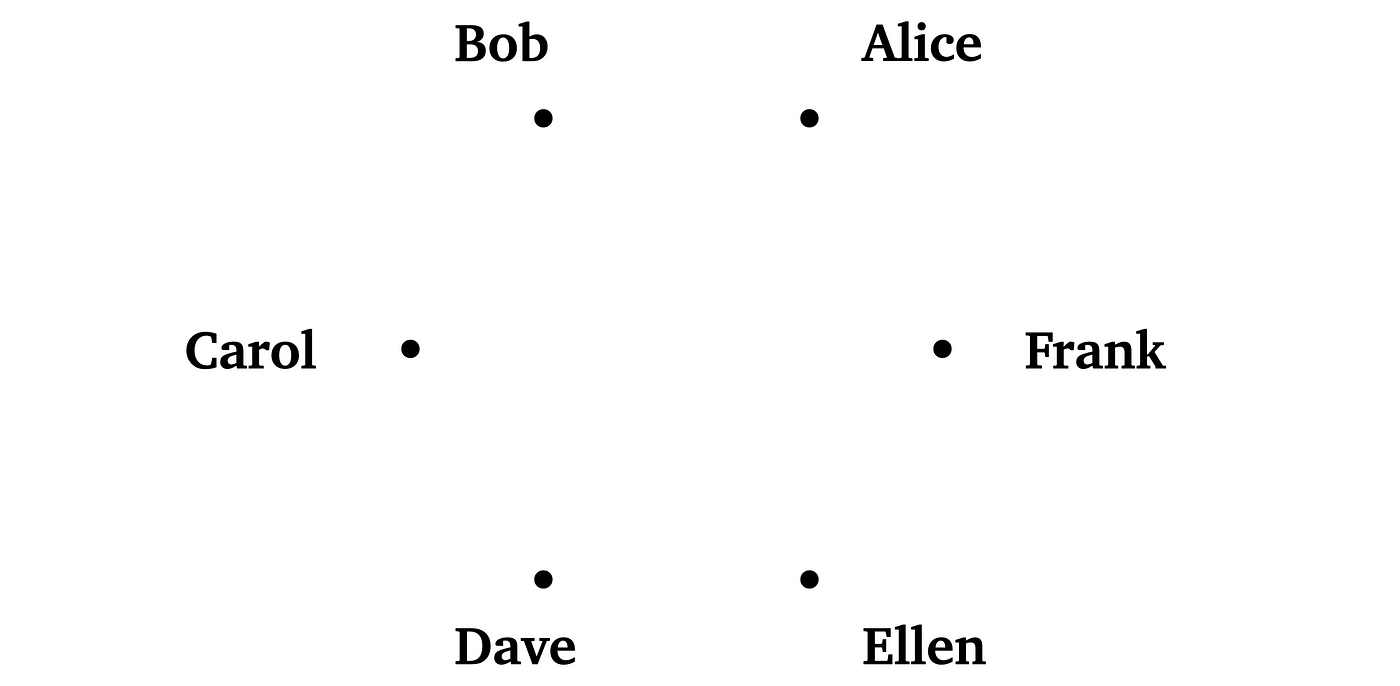
Let’s take a look at Alice first. To her, each one of the other five (Bob, Carol, Dave, Ellen, and Frank) is either a friend or a stranger. Suppose Bob, Dave, and Frank are friends to Alice, and…
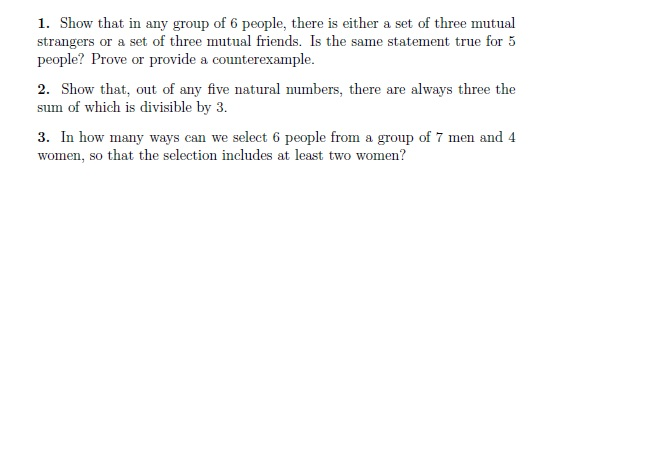
Solved 1. Show that in any group of 6 people, there is
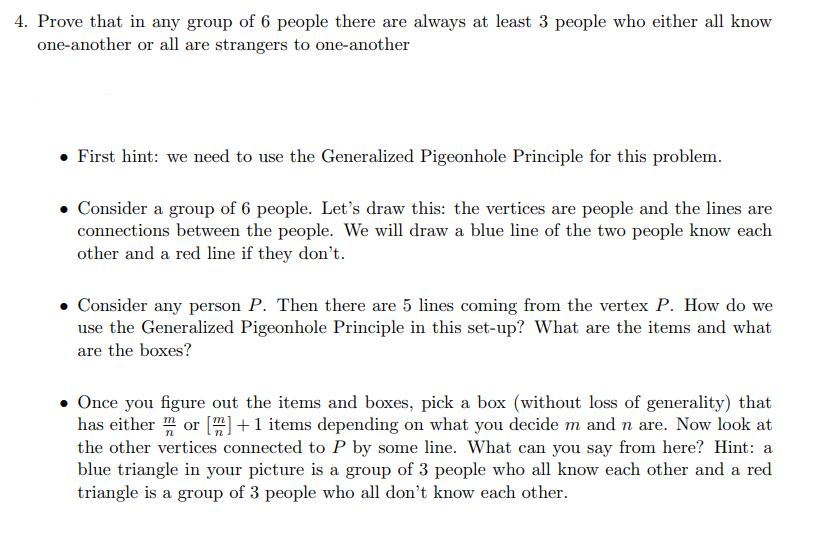
Solved 4. Prove that in any group of 6 people there are

Party Problem The simplest example of Ramsey theory. It is also known as the 'Maximum Clique Problem'. A clique of a graph is a complete sub graph of the. - ppt download

Party At Ramsey's
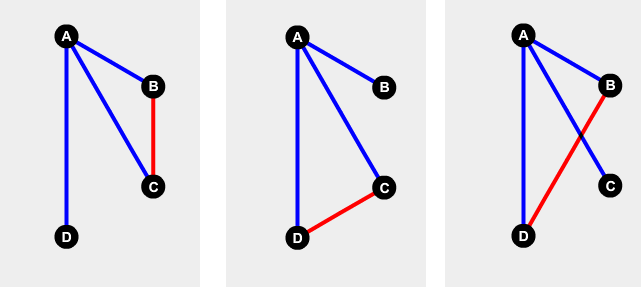
Theorem on Friends and Strangers. Ramsey Theory and Graham's Number, by Francesco Di Lallo

The Friendship Theorem - You Always Have 3 Friends Or 3 Strangers At A Party
How to prove: at a party of six people either there are three mutual acquaintances or there are three mutual strangers - Quora
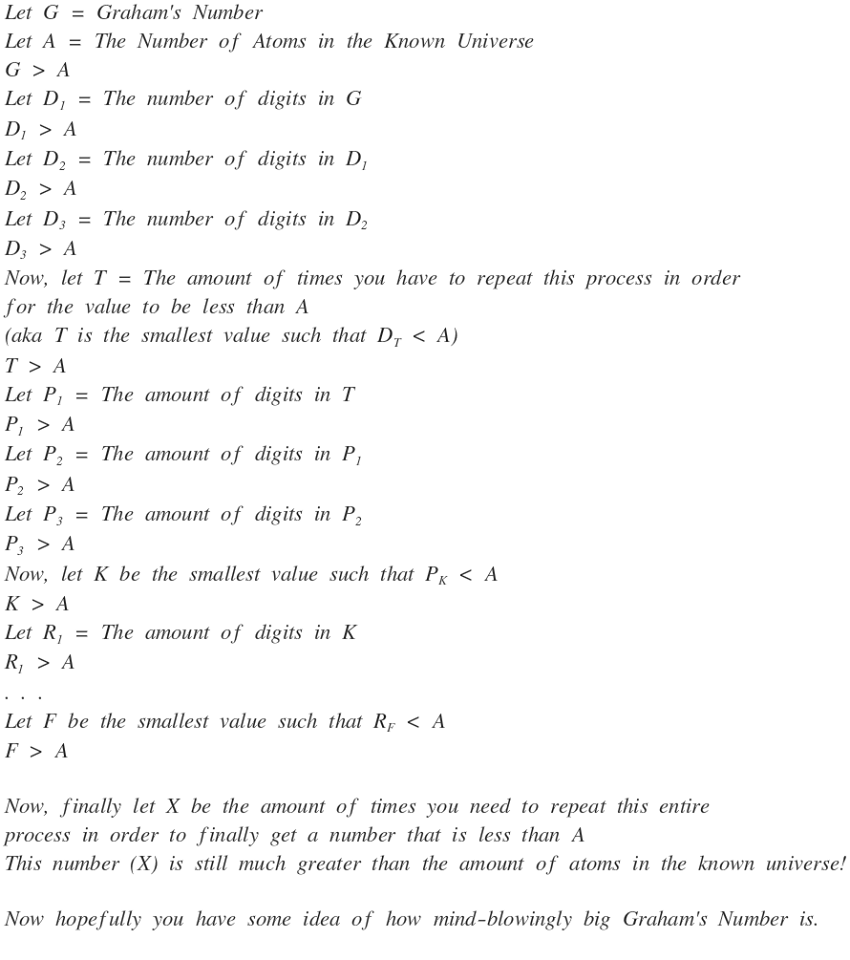
Theorem on Friends and Strangers. Ramsey Theory and Graham's Number, by Francesco Di Lallo

Can 6 People Uncover a Mathematical Certainty? The Surprising Truth!

Correlation, Causation, and Ramsey Theory

Theorem on Friends and Strangers. Ramsey Theory and Graham's Number, by Francesco Di Lallo
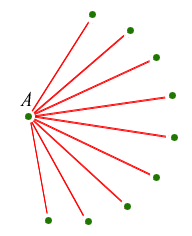
Friends and strangers

Theorem on Friends and Strangers; Why in Any Party of Six People, Either at Least Three of Them Are Mutual Friends, or at Least Three of Them Are Mutual Strangers
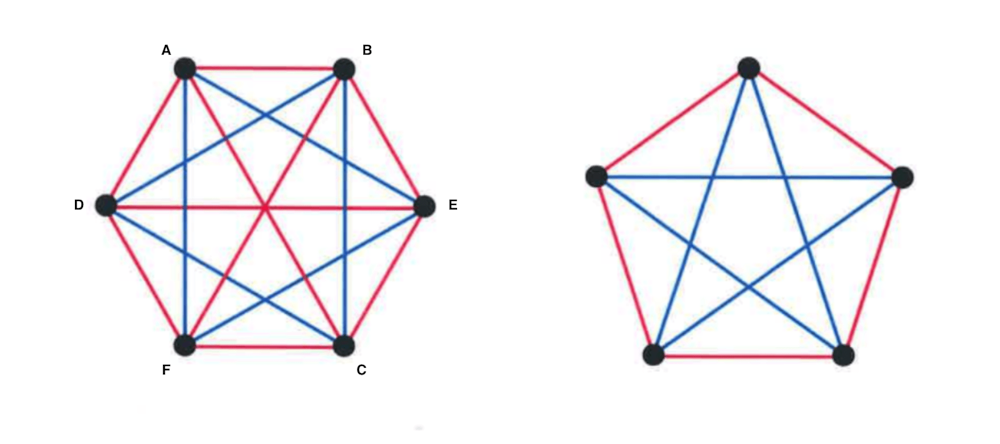
This math puzzle will help you plan your next party
Recomendado para você
-
 Strangers. Friends. Best friends. Lovers. Strangers Stranger quotes, Love anniversary quotes, Lovers quotes12 abril 2025
Strangers. Friends. Best friends. Lovers. Strangers Stranger quotes, Love anniversary quotes, Lovers quotes12 abril 2025 -
Stranger Friends12 abril 2025
-
 So true. Strangers to friends n friends to best friends. ..12 abril 2025
So true. Strangers to friends n friends to best friends. ..12 abril 2025 -
 Quotes 'nd Notes - Strangers can become best friends just as easy as12 abril 2025
Quotes 'nd Notes - Strangers can become best friends just as easy as12 abril 2025 -
 Aarti on X: Strangers - Friends - Best Friends - Lovers - Strangers .. A Full Circle .. Love withers away #MostHearingLies / X12 abril 2025
Aarti on X: Strangers - Friends - Best Friends - Lovers - Strangers .. A Full Circle .. Love withers away #MostHearingLies / X12 abril 2025 -
 When strangers become friends, and lovers become strangers again… – KimberleyMurray12 abril 2025
When strangers become friends, and lovers become strangers again… – KimberleyMurray12 abril 2025 -
 How does a best friend become a complete stranger?12 abril 2025
How does a best friend become a complete stranger?12 abril 2025 -
 Drake quote: It's great when two strangers become best friends but not12 abril 2025
Drake quote: It's great when two strangers become best friends but not12 abril 2025 -
 Friends and Strangers' by J. Courtney Sullivan book review - The Washington Post12 abril 2025
Friends and Strangers' by J. Courtney Sullivan book review - The Washington Post12 abril 2025 -
 strangers to friends :(12 abril 2025
strangers to friends :(12 abril 2025
você pode gostar
-
 OMOCAT Omori BASIL Plush Brand New Official12 abril 2025
OMOCAT Omori BASIL Plush Brand New Official12 abril 2025 -
 LIGA DE BÉLGICA, GENT VS CLUB BRUJAS12 abril 2025
LIGA DE BÉLGICA, GENT VS CLUB BRUJAS12 abril 2025 -
 Modelo conquistou o coração do surfista - Agora MT12 abril 2025
Modelo conquistou o coração do surfista - Agora MT12 abril 2025 -
 PC Gamer TERTZ Loyalty, RTX 4080, 13700KF, 1TB, 32GB DDR12 abril 2025
PC Gamer TERTZ Loyalty, RTX 4080, 13700KF, 1TB, 32GB DDR12 abril 2025 -
Por qué el hombre más inteligente del mundo (William James Sidis) no dejó nada relevante en el mundo de las matemáticas u otras disciplinas? - Quora12 abril 2025
-
Goofy Ahh Soundboard - Memes - Apps on Google Play12 abril 2025
-
 Associação Sabesp - DIÁRIO DA FRANCA - Champions League movimenta Sabesp12 abril 2025
Associação Sabesp - DIÁRIO DA FRANCA - Champions League movimenta Sabesp12 abril 2025 -
![NEW ] Pet Simulator X Script GUI 2022, Many OP Features](https://i.pinimg.com/736x/0d/67/ba/0d67ba0f3e323bd7dd42877c068dd6f3.jpg) NEW ] Pet Simulator X Script GUI 2022, Many OP Features12 abril 2025
NEW ] Pet Simulator X Script GUI 2022, Many OP Features12 abril 2025 -
 Se quiserem, posso jogar pelado', diz enxadrista acusado de trapacear - ClickPB12 abril 2025
Se quiserem, posso jogar pelado', diz enxadrista acusado de trapacear - ClickPB12 abril 2025 -
 SHIGATSU wa KIMI no USO Arima Kosei Your Lie April adventure manga series 1yourlie wallpaper, 1614x1200, 65158112 abril 2025
SHIGATSU wa KIMI no USO Arima Kosei Your Lie April adventure manga series 1yourlie wallpaper, 1614x1200, 65158112 abril 2025
